During the Month of the Martyrs, November, 2009, the rains of Hurricaine Ida hit the marginal community of Apopa en San Salvador. Bishop Medardo Gomez meets with his pastoral community in his home before walking with the people whose homes and drinking water fill with mud. "No hay una barca de Noe para salvarnos," Bishop Gomez says.
TRAVELING
IN THE HOLY LAND
OF EL
SALVADOR WITH OBISPO MEDARDO GÓMEZ
An
avalanche of mud just fell into the house.
Call the
police just to see if they´ll come.
It´s
not important to know where Obispo
is
going. When he gives the invitation
To
get in the car, get in the car.
The
man in the back seat is a mason,
albañil. He builds houses for Habitat.
Last
night his house filled up with mud.
When
it got to my neck, I got up on the roof
And
climbed into another house. It, too,
filled
With mud. All the houses this morning are gone.
Me llamo Lazaro, he says. ¿Cómo? I ask,
How
is that? Lazaro, he says again.
We´re
driving Lazarus to work,
To
build a house. Lazaro, I ask,
Can I
take your picture? I describe
His
blue striped shirt in my notebook
For
verification. I take three pictures, And then
I
take one more. Then I ask,
Lazaro, can I get in the picture with you?
handing the camera to the driver.
Good, can you take one more just to make sure.
Lazaro builds houses for his pueblo.
The bishop walks with his pueblo.
I don´t make things up.
I write what I see and hear.
When the Bishop asks you to get in the car,
he gives you an invitation to change your life.
Jim Bodeen
13 de noviembre 2009
San Salvador
WITH MARIO AND MÁRDEN IN THE HABITAT PICKUP,
EATING RED BERRIES OF COFFEE, LISTENING, TAKING PICTURES
We leave Lazaro at the house
where the foundation has been set.
Márden shows me the water tank
Lazaro will use for drinking and washing,
the kind of tanks the armed forces
have mounted on pickups to get to people
whose houses are gone. Bariles con pipas.
Water in barrels, for bathing and drinking.
Lazaro, the albañil, will build this house
in six weeks. Márden, a university
student, lost his house last night, too.
He lives with his four brothers.
His father salió la casa cuando tenía
13 años, and his mother’s in Maryland
for 18 months. She calls once a week.
Mario wants me to see his city
desde la cima del volcan de
San Salvador ,
from the summit of the volcano.
Finca de café. We stop for photos
by the side of the road. Mario shows me
the red berries of the coffee
growing in the shade trees. Cuidado,
Jim, he says, vas a estar enfermo si
te chupas tanta
café. Children
helping parents pick café get sick
sucking on the sweet fruit so exotic
in my daily ritual. He has to talk
with a habitat owner delinquent
with payments. I wait in the pickup.
Eight soldiers pass by with machine guns.
On my side of the pickup, a coffee plantation.
On the driver’s side, una casa de carton.
I recall lines from la cancion por los Guaraguayos,
You won’t believe this but they have schools
to train dogs to bring the newspapers to the door.
Es bien complicada, Jim, Mario tells me later.
Life here is not based on money. We eat better
here than in the city, and we don’t get sick.
I’m looking at the lamination. Tin half-door
with clothes drying in sun. Pura casa de carton.
One wall corrugated tin, the other, a fiberboard
crate for shipping. The exterior wall:
Plywood, Pine FACEBACK 18 X 220X 2440,
SHEETS/CRATE, all caps, like that.
to: PORT Acatutla, El Salvador. Half the soldiers
walk around my side of the pickup, the others
walk by the driver. Más complicada, Jim,
over and over all day, like the song, Asi, es, Jim.
One truck reads Cristo Rey on the windshield,
another reads, Unforgiven. Mejor comida,
aguacate, aire fresco. Rich coffee
from poor countries. Mario at the summit
has Márden pull off for more photos.
Mario’s working, pero posiblemente
esta día es puro vacación para cada uno
de nosotros. Mario stands on the balcony’s
handrails, balancing, while I photograph him.
Riding with the albañil Lazaro.
Being driven by Márden. Both washed
from their houses. Helicopters
can get in,
but I had to walk out,
un milagro.
Police stop us on the way down the volcano.
I think they want to see my passport,
but what they want is a ride, un aventón,
down the mountain. I take their photo
in the rear view mirror. Mario explains
the legend of the sleeping woman,
la princesa de Suchitlán.
Jim Bodeen
ll de noviembre 2009/San Salvador
30 November 2009/Yakima



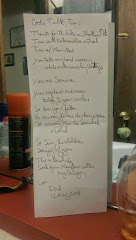
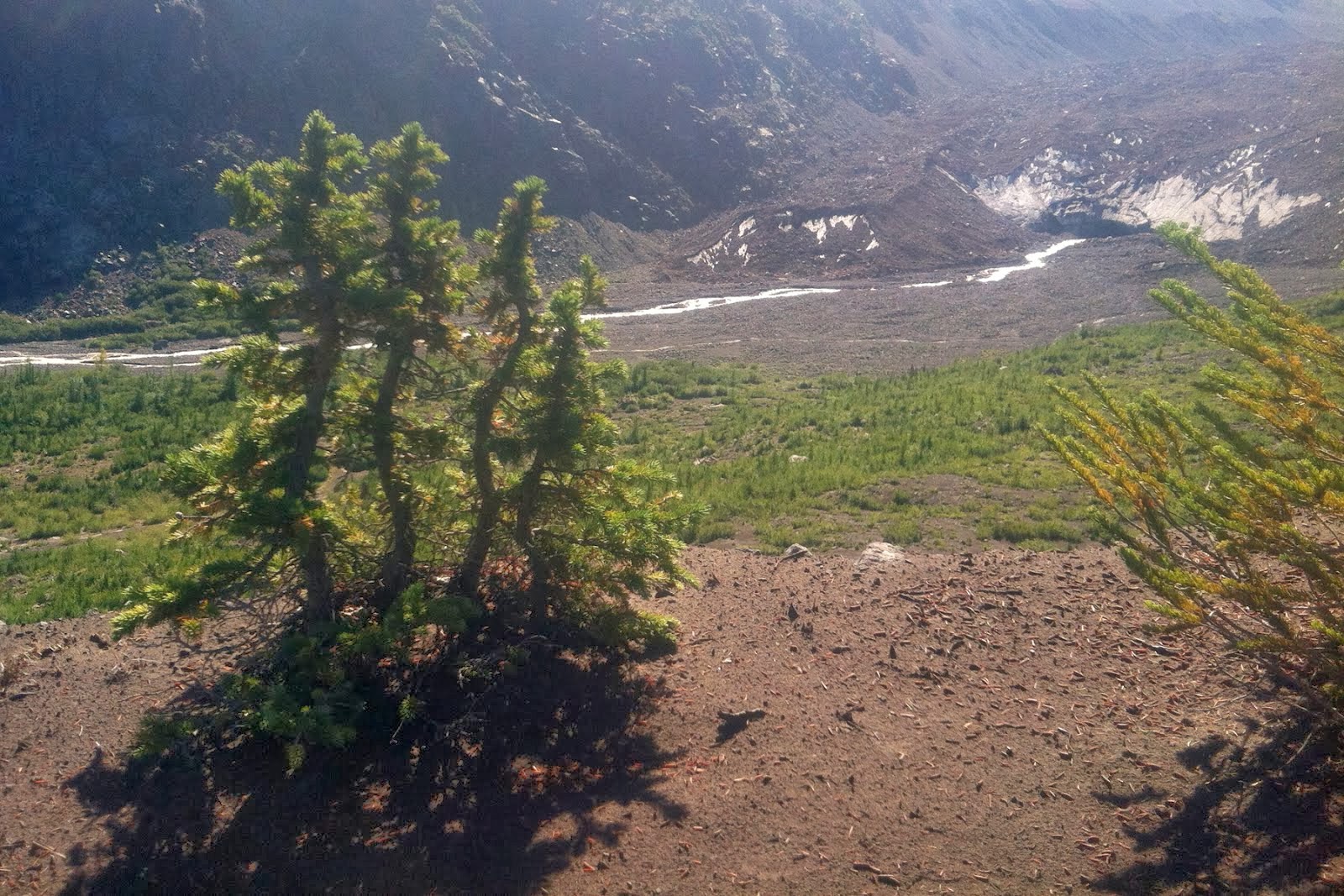
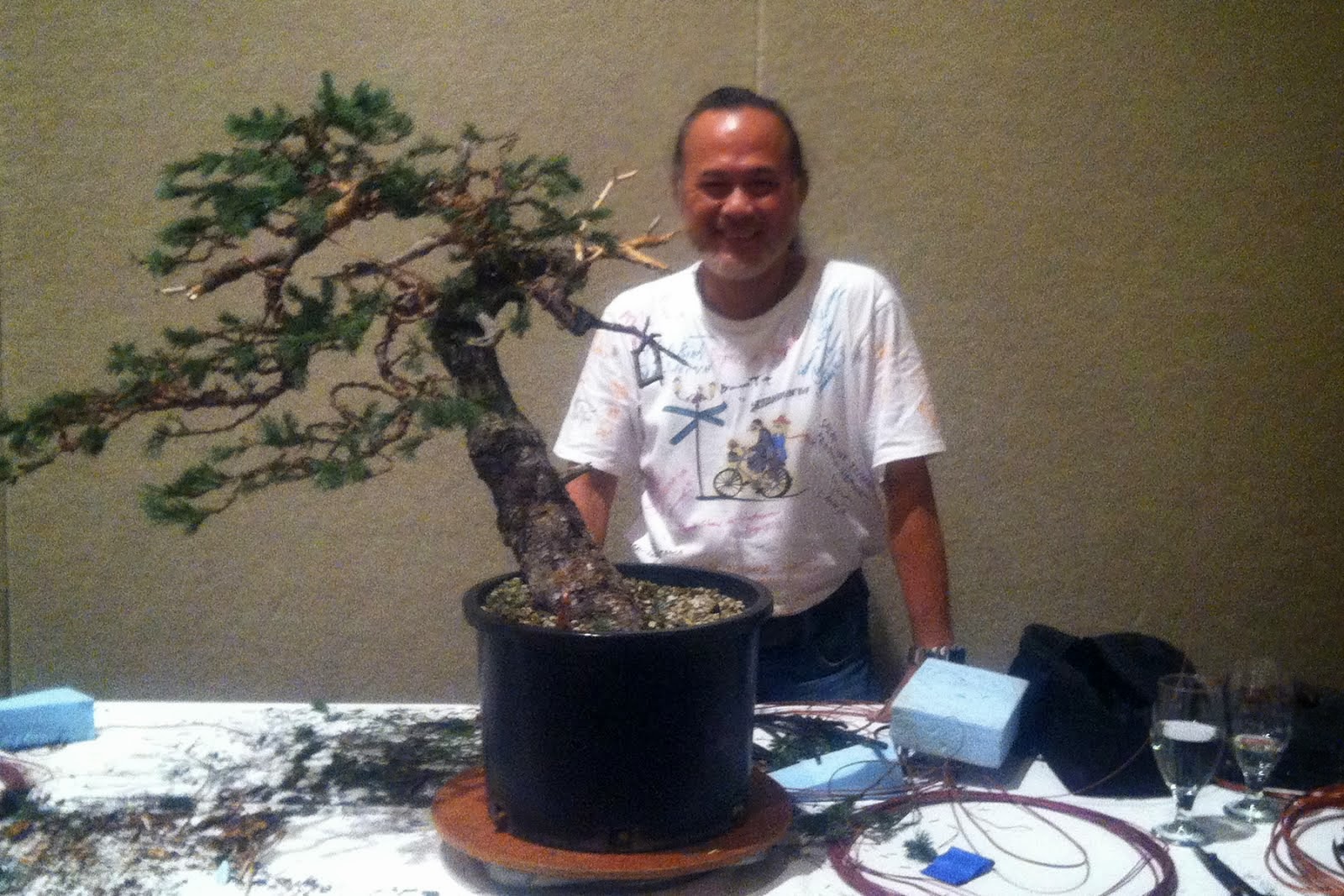
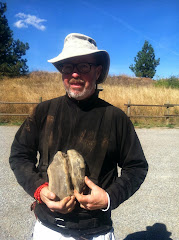
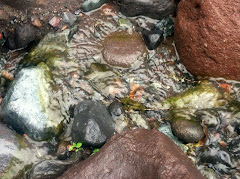

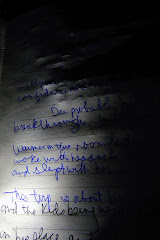

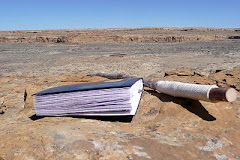
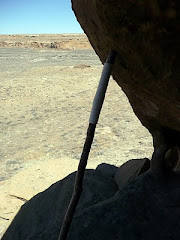

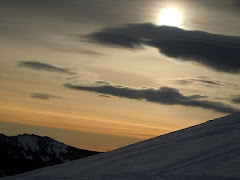
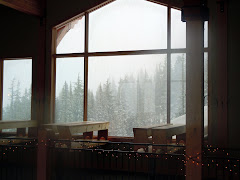


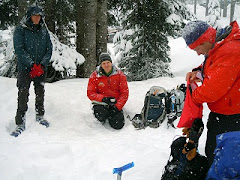
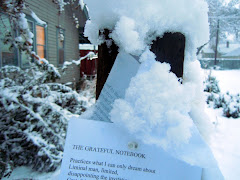

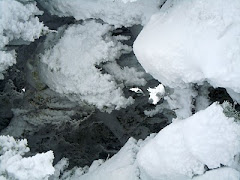
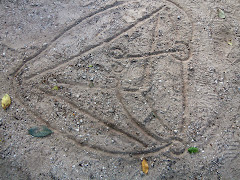
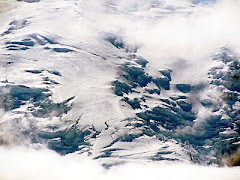











No comments:
Post a Comment